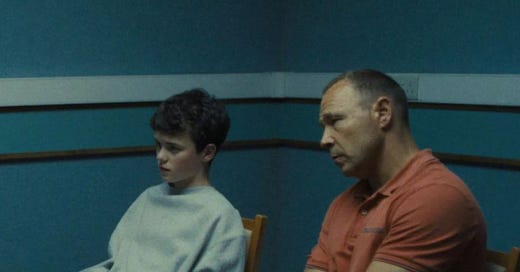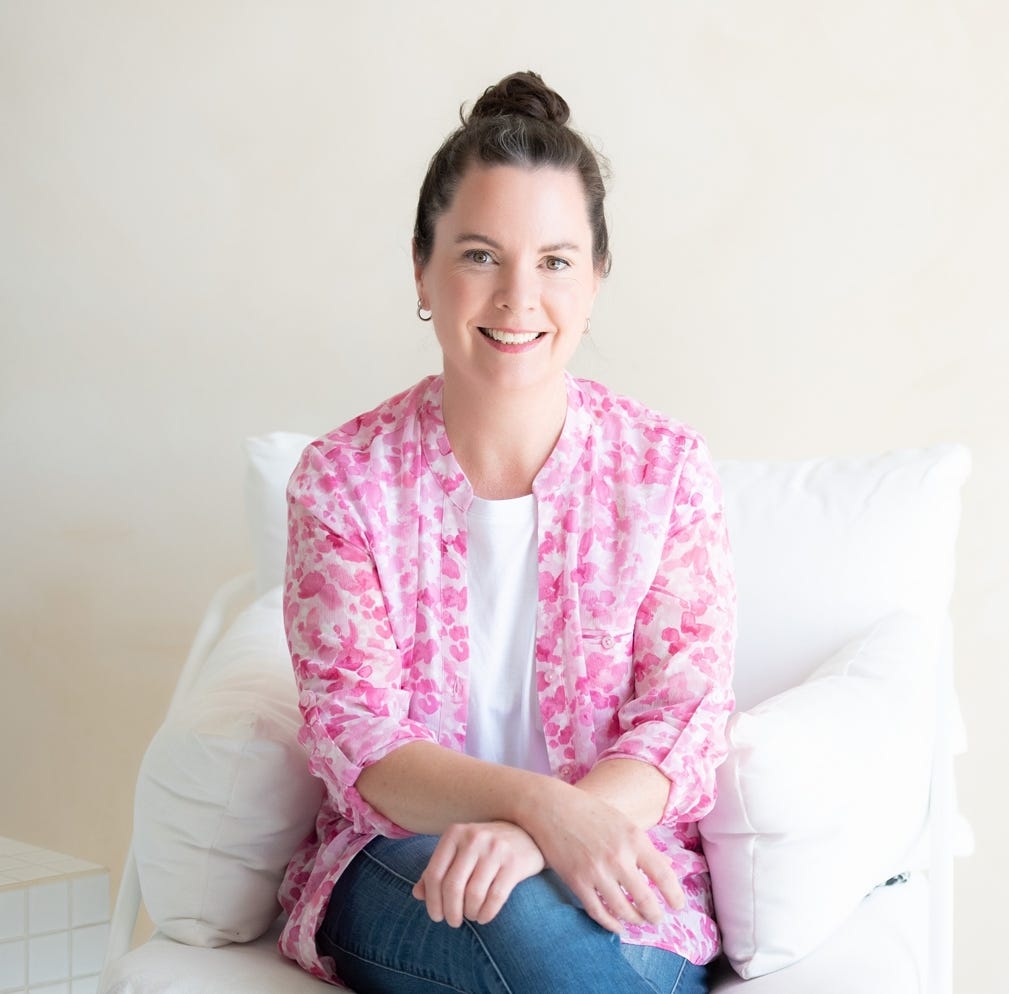I welcome ANY and ALL deep discussion about Netflix's mini series “Adolescence.”
The way parenting is portrayed in the media pisses me off so often that my husband John has gotten used to my shouts at the TV. But there’s a reason this series is so popular. As an artist obsessed with breaking generational cycles (while raising a budding filmmaker) the series had me riveted from the opening shot.
That’s why I was giddy when
of Peaceful Parenting agreed to go live with me to talk about “Adolescence.” The insights that it raised for us both go far beyond hysteria about social media. Despite the sensational aspects of the story, the experiences depicted highlight real issues in raising and connecting with teenagers.I’ve edited the LIVE recording and cleaned it up so you can hear it on the Atypical Kids Mindful Parents Podcast. I'll share some of the most meaningful ideas from our discussion below, in hopes that you’ll be compelled to watch or listen to the 22 minute conversation.
Exploring Themes in "Adolescence"
Sarah highlighted two crucial points from the show: the importance of maintaining connection with teenagers, and the impact of parental shame. I brought up a third point (regarding the role of the mother) that hasn’t been dissected much in the media.
Understanding Connection Through Netflix's "Adolescence"
Challenges and strategies for keeping a strong connection with our teenagers.
Netflix’s series, 'Adolescence,' reflects real-life issues like toxic masculinity and the impact of social media, but we can’t stress enough the protective nature of parental connection.
Sarah shared why it’s crucial to engage with teens even when they seem distant and how boosting their sense of self-worth can be super protective.
Families can lose touch with their adolescents, and Sarah's insights during our conversation reminded me of the importance of rebuilding those bonds. The frequent rejection teens show towards parents is developmentally appropriate, she says, so it’s important to persist.
"Teenagers might act like they don't want us around, but there's a big part of them that still does want to be connected."
-
Parent Expectations Versus Embracing Weirdness
A significant theme in "Adolescence" is the impact of unmet expectations.
We explored how unmet parental expectations and shame can harm relationships. Sarah referred to a moment in "Adolescence" where the father's disappointment in his son’s soccer skills created a lingering sense of shame.
"What our kids need most from us is to feel lovable and worthy. Even if they're artists instead of jocks."
-
This highlights the need for parents to support their child's individuality, and made me think of how we’ve encouraged Ocean’s varied special interests. Even more essential for parents of neurodivergent kids, we’ve got to value who our children are, rather than who we might wish them to be.
In my childhood, my mom emphasized that "being weird is cool." By encouraging individuality and creating an environment where kids feel empowered to be true to themselves, it builds a supportive environment for them to flourish, and protects them from the worst impact of bullying.
The Mom's Role and Hyper-vigilance
One little-discussed angle I found fascinating was the mom's role in the story.
I related to her fawning/appeasement behaviors, recognizing someone who continuously pivoted to manage her husband's moods and the family dynamics. As someone familiar with such relationships, I felt her hyper-vigilance deeply. From the start, she was constantly regulating her husband's emotions, and it was clear she lived in survival mode.
Jamie’s mom mentioned at the end, “Maybe we should have paid more attention to his temper, and done something about it.”
The sense I got was, Jamie and his dad didn’t have to regulate their own nervous systems because they had outsourced that to the women in the family. Which is why Jamie was so perplexed that other women and girls didn’t capitulate for him and try to soothe him.
He didn’t have a role model of a woman standing up to a man.
Raising Reflective Rebels
In our conversation, radical parenting felt to both of us like a glimmer of hope. This approach, influenced by Alfie Kohn, focuses on nurturing reflective rebels:
“Raising kids who won't be quiet if something's not fair, and will stand up and say something when someone's being bullied. This kind of parenting… starts at home, allowing your child to question you and talk back to you. And this is their practice for going out in the world and standing up for what's right.”
-
"Adolescence" serves as a powerful reflection on family dynamics and systems that perpetuate violence. Cycle-breaking and mindful parenting are the most radical things we can do right now to protect our kids from those systems.
Through connection, acceptance, and supporting our children's uniqueness, we can navigate the complexities of modern parenting with hope and intention.
Connect With Sarah & Recommendations
Sarah Rosensweet is a certified peaceful parenting coach, speaker, and educator and the founder of Reimagine Peaceful Parenting.
She lives in Toronto with her husband and her 18 year old daughter. Her 21 and 24 year old sons have launched. Listen to her top-rated parenting podcast, The Peaceful Parenting Podcast, wherever you get your podcasts.
Peaceful parenting is a non-punitive, empathy and connection-based approach that focuses on parent-child collaboration. Sarah works with parents all over the world to help them go from frustrated and overwhelmed to, “We’ve got this!”
During our conversation, Sarah recommended:
"Staying Connected to Your Teenager" by Michael Riera, which offers strategies to keep ties with teenagers strong, and
"The Myth of the Spoiled Child" by Alfie Kohn, a lesser-known work of his that challenges conventional beliefs about parenting and emphasizes the importance of raising reflective rebels. (As an amazon affiliate, I earn from qualifying purchases.)
- , and this podcast which I’m hoping to dive into soon: “What is ADHD?”
















Share this post